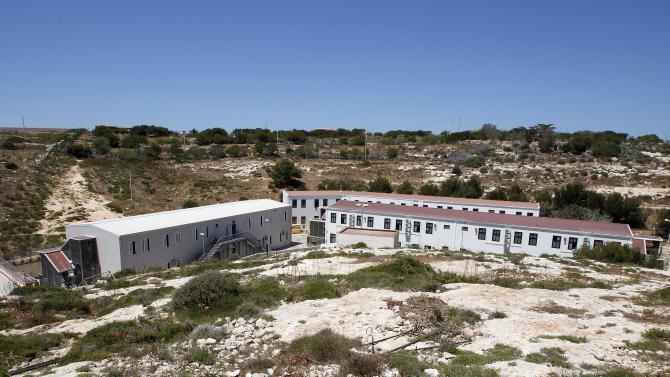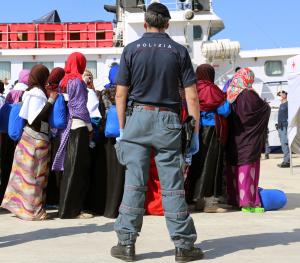Date: Wed, 13 May 2015 18:36:35 +0200
BRUSSELS (AP) — The European Union will on Wednesday unveil its plan to confront the challenge posed by a massive influx of migrants fleeing war and poverty in Syria, Eritrea and elsewhere.
EU border guards are struggling to deal with a boat-borne exodus that has seen more than 10,000 people plucked from the Mediterranean off Libya in the last month. No one knows exactly how many have drowned, but around 1,700 are feared dead.
The agenda sets the migration priorities of the EU's executive Commission. It lays out a calendar for new action and proposals for mobilizing funds, resources and EU border, police and asylum agencies.
Key parts of the agenda require agreement from member nations and are unlikely to be endorsed. These include setting up a real European border guard system and imposing country-by-country quotas for taking in migrants. An anti-smuggler operation and creation of a new Frontex returns department must also be rubber stamped but are less controversial. The Commission can move independently on most other items.
The plan's main points:
INTERCEPT: Start advance planning, possibly next week, for an operation to "systematically identify, capture and destroy" boats used by smugglers to ferry migrants. The aim is to launch it next month. Implement better intelligence sharing, with police agency EUROPOL helping EU countries to break up trafficking networks.
SAVE LIVES: Provide new assets and resources and a wider operational area for the Frontex border agency missions involved in search and rescue work. Longer-term, set up a real European border guard system to improve coast guards, share assets and conduct joint exercises.
PROCESS MIGRANTS: Send European asylum agency experts to help identify, register and fingerprint migrants as sheer numbers currently make that difficult. Offer emergency funds to front-line nations like Italy, Greece and Malta to improve reception capacities and health care. Create new avenues for legal migration based on job skills. Overhaul a Blue Card scheme for highly qualified foreigners.
SHARE THE BURDEN: Set afoot a scheme to resettle up to 20,000 migrants in need of international protection. Only five countries handled almost three quarters of asylum demands in 2014. Activate temporary protection laws to provide help people from conflict zones like Syria. Propose legislation in the summer to turn this into a binding quota system establishing maximum migrant limits for each country based on population, GDP and employment rate. Act against countries ignoring asylum laws.
RETURN: Monitor decisions refusing migrant entry and ensure these people are sent home. Only 39 percent of return decisions were respected in 2013. Build capacity in member countries to better manage returns and provide information and awareness campaigns. Shift focus for returns to home countries instead of transit countries. Create a special Frontex department to help coordinate and smooth deportation.
OUTSOURCE: Establish a pilot system in Niger this year to screen migrants, help provide local protection for them and work out resettlement opportunities for those in need. Deploy migration attaches to Libya's neighbors and other African countries. Strengthen cooperation with Mali. Boost and focus development aid to help fight poverty and remove incentives to leave. Hold a dedicated EU-Africa summit in Malta this autumn to boost cooperation with key countries. Increase support to Turkey and send a migration officer there.


